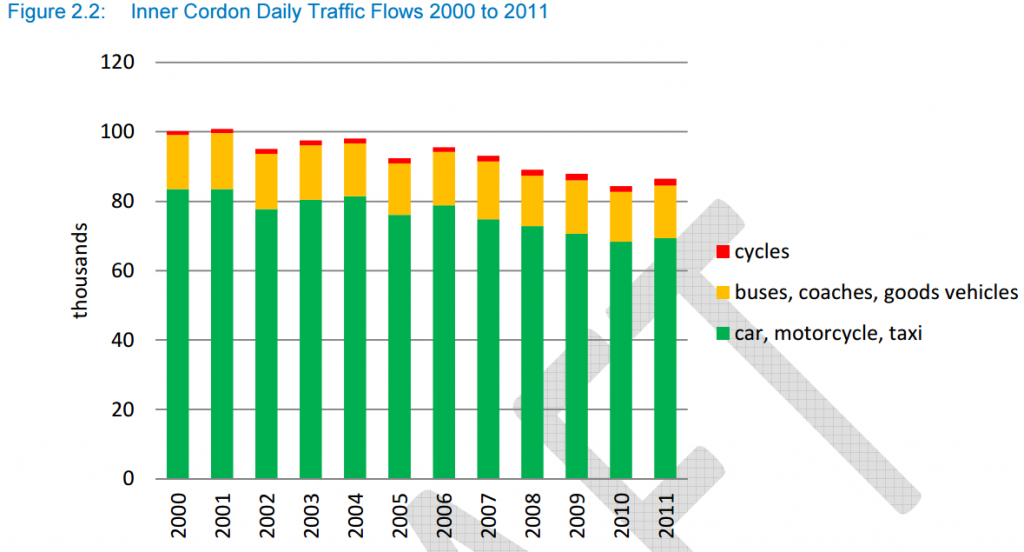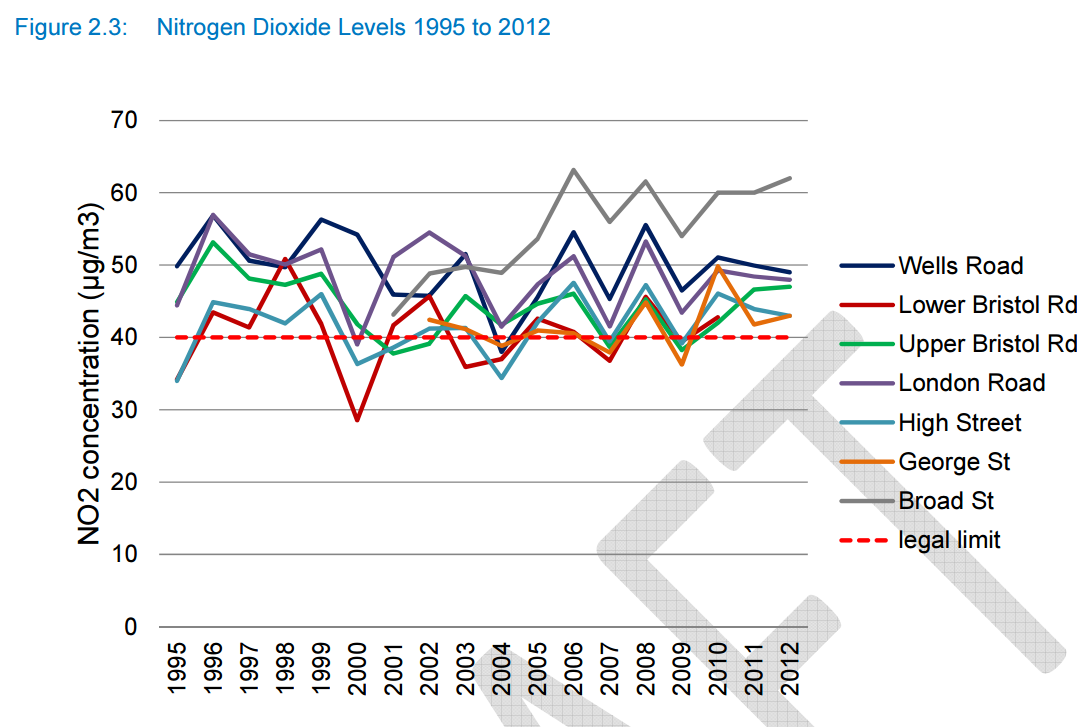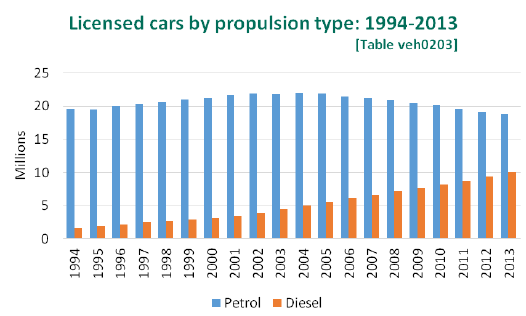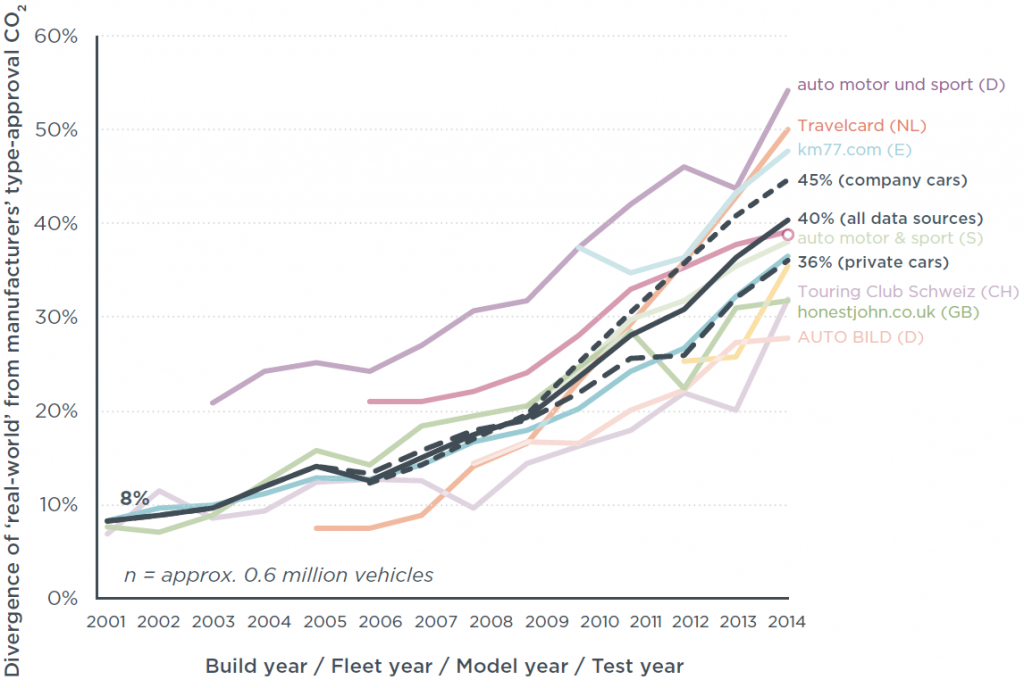Given the recent news about Volkswagen cheating on their pollution testing in the US, we thought it would be useful to outline what impact this is having on air pollution on the London Road and elsewhere in Bath, and its implications. It is also topical because the Eastern Park and Ride is a hot topic in Bath at the moment, with opposing claims as to whether it will reduce pollution or not.
Traffic and pollution in Bath
Two graphs from B&NES’s recent transport consultation aptly summarise the problem:


The obvious explanation for this anomaly is that in this same period the number of diesel vehicles has increased significantly offsetting any benefit which might have been gained from the reduced traffic volume. The left hand graph also indicates that the council’s transport policies in reducing car congestion in Bath might be working, and might, in conjunction with other measures be an argument for Park & Ride?
Increased diesel car ownership over the last 10 years
In the period above diesel car ownership has gone from 8% to 34% as demonstrated by this graph from the UK government:

And given it transpires that these diesels have not been getting more efficient or less polluting as highlighted by the VW scandal it is not surprising given the increase in diesel ownership that pollution in Bath has not been improving. This recent report clearly demonstrates that all car manufacturers have been producing test results which have been diverging further and further from the real world over the last 10 years:

In 2001 real world pollution from cars was only 8% higher than that predicted by tests, but by 2014 this had increased to 40%. Clearly either the manufacturers have got better at fiddling their results, or the efficiency and anti-pollution measures they have installed to meet new government regulations only work in the tests and not in the real world.
The impact
The impacts of this failure are two fold:
- the impact on health: which includes respiratory diseases, cardiovascular problems (up to 30,000 deaths per year), and reduced brain function which particular impacts the young and the elderly
- CO2 emissions which impact global warming
What can be done in Bath?
We have a number of suggestions:
- Encourage a modal shift away from private car usage towards public transport, cycling and walking
- Lobby government to produce more realistic independent emissions testing on new vehicles
- Push for a Low Carbon Emissions Zone in Bath
- Push for greater use of electric cars and more charging points
- Perhaps have car free Sundays like Bristol and Paris (where a 30% in car traffic led to 40% drops in pollution)
- Increase taxes on diesels and diesel cars to discourage people from using them, including in Bath for example charging diesels more for parking permits
Transition Bath does its best to promote the suggestions above particularly through its involvement in public consultations and its comments on major local planning applications (we push for cycle facilities, local buses, car clubs, electric car charging points). If you would like to get involved, please email us at transport@transitionbath.org .